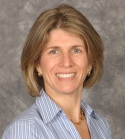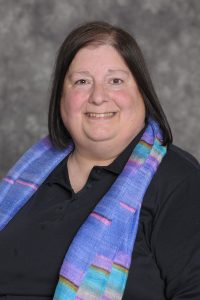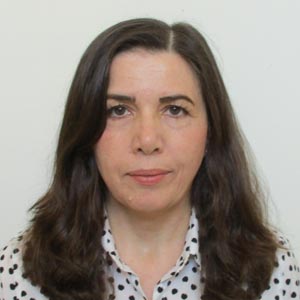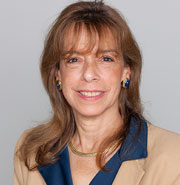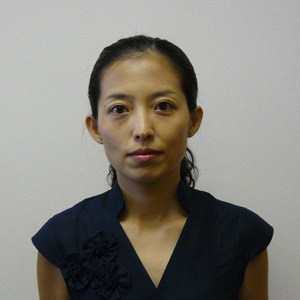Anuradha Godavarty, Associate Professor
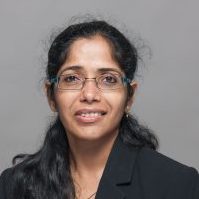
Research Area: Diagnostic Bioimaging Sensor Systems
“I always enjoyed science and math as a kid and that drove me to be an engineer. Teaching being my passion, I chose to merge STEM and teaching and become a professor. Passion and interest have no gender bias, so why should a profession be? Always choose a profession that you can enjoy as a hobby and not a job to just get done.” October 2019
Jessica Ramella-Roman, Associate Professor
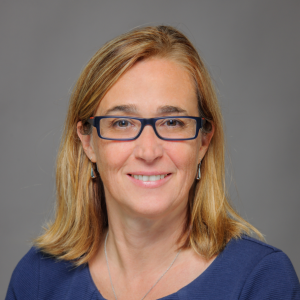
Research Area: Diagnostic Bioimaging Sensor Systems
Anna Bernardo-Bricker, Senior Instructor
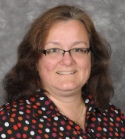
“I decided to pursue careers in both science and engineering because I was, and I continue to be curious about the workings of the natural and the human-made world, and their mutual interaction. I have had opportunities to make contributions in research and development in the area of air quality, and I feel privileged to have been able to contribute to teaching and mentoring STEM talent at FIU. It is challenging and exciting to help students move beyond their fears and develop confidence in their learning abilities through consistent practice and effort.” October 2019
Amal Elawady, Assistant Professor
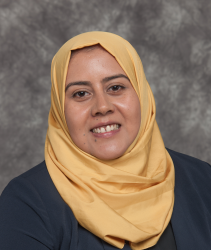
“As a teenager, I was fascinated by the great stories I heard from my civil engineer uncle who is running his own construction company. Therefore, I studied hard during high-school with a top aim in mind ‘to become a civil engineer’. My research is in the area of wind effects on buildings and infrastructure. I strive to understand the response of structures during extreme wind events such as hurricanes and how to better design structures to prevent potential damage during strong wind storms. The ultimate aim of my work is to communicate my research results with the community and policymakers to enhance the design standards and construction practice to “prevent natural hazards from becoming a societal disaster”. Studying engineering can be difficult or can be fun. It depends on how you handle it. Key elements in a successful engineering study are persistence and curiosity. Find good mentors and good colleagues. Do not be afraid of asking questions to your teachers, peers, and mentors – – remember engineering is about curiosity. Make sure to find the right career path while you are still studying – there are several activities in school that can help you be better prepared for your future engineering career. Join engineering clubs, participate in conferences and workshops, and work on your technical writing and presentation skills.” October 2019
Berrin Tansel, Professor
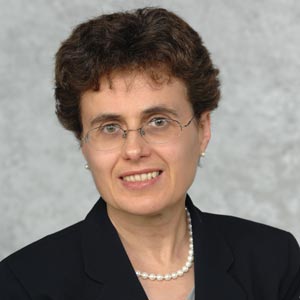
Research Area: Environmental Engineering
“The job market and skill needs for environmental engineers have been expanding, requiring more interdisciplinary training and global citizenship. Environmental stresses have been increasing due to the increasing magnitude of waste quantities and pollutants released to environment. Today, the need for engineers who are trained in environmental engineering discipline is more urgent than ever due to rapid advancements in science and technology, changing demographics and land development, new regulatory requirements, increased global interactions, and large scale events with significant environmental impacts.” October 2019
Xia Jin, Associate Professor

Priyanka Alluri, Associate Professor

Caryl Rahn, Instructor
Christine Lisetti, Associate Professor
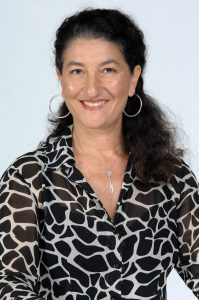
Research Area: Virtual characters for health communication and behavior change
“I decided to get a Ph.D. in computer science because I was broadly interested in studying both 1) how human communication of social signals and human socio-emotional intelligence could be modeled computationally to better understand how humans communicate, think and feel, and 2) how that better understanding of human social intelligence could help develop computer artifacts that humans can enjoy interacting with and learning with. Since I joined FIU, I have applied my basic research to two application domains: education and health. One of my current research projects (in collaboration with education researchers) focuses on understanding how to model emotional behavior that disruptive students can have in K-12 classrooms, and on applying that understanding to build a 3D virtual training system that provides behavior management practice experience to early-career teachers as they interact with disruptive students in the safety of a 3D virtual classroom – before they teach in a real classroom. If you have unconventional ideas or approaches to science and research that do not fall in conventional boundaries, be prepared to face strong resistance and rejection, and learn to find joy in arguing with the many novel arguments you will need to build in order to challenge and win over conventional thoughts.” October 2019
Debra Davis, Senior Instructor
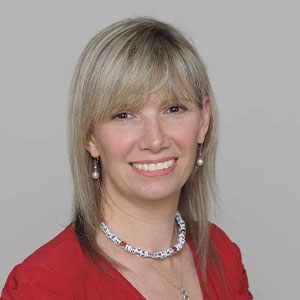
Jill Weiss, University Instructor
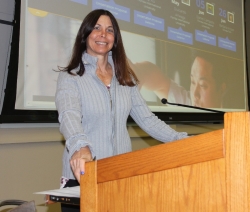
Janki Bhimani, Assistant Professor
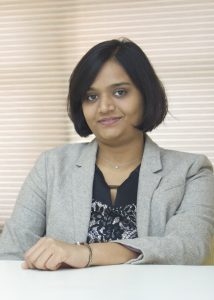
“We are fast approaching a new era of the Data Age. Big Data storage management is gaining attention because of its vast storage requirements and exponential growth. We as consumers will enjoy the benefits of a digital existence, powered by this wealth of data and the insight it provides. However, the current infrastructures of data, compute and storage will not be sufficient to meet the demand posed by these changes. Therefore, these trends present interesting challenges and opportunities towards designing holistic parallel and reliable computing systems for large-scale data-intensive workloads to efficiently store, process and manage many billions of bytes. As a faculty, I seize these opportunities in my research, teaching and mentoring. We investigate interactions and implications of executing data-intensive workloads on emerging hardware systems to achieve better performance, endurance and reliability. I am thrilled by the opportunity to educate and shape the young generation. Not only do I consider these activities to be vital to my passion as a scholar, but I find them to be among the most impactful and personally rewarding.” October 2019
Maria Cristina Charters, Instructor
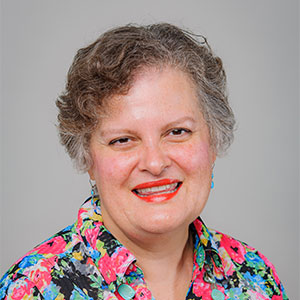
Agoritsa Polyzou , Assistant Professor

Monique Ross, Assistant Professor
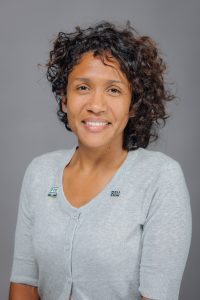
Research Area: Broadening participation through discipline-based education research
“I have the honor of studying the challenges that are most important to me – getting more women and people of color into computing and engineering. I long for the day, when I can see a computing and engineering profession that better reflects the nation’s demographics and see more faces in tech that look like me.” October 2019
Niki Pissinou, Professor

My current research interests are
• Privacy and Security
• Wireless, Sensor, Li-Fi, 4D and Societal Networks and Systems
• Augmented Reality based Networks
• Internet of Things
• Aspects of nontraditional data management for emerging applications
Read More About Niki Pissinou Here.
Charlyne L. Walker, Teaching Assistant Professor
Patricia McDermott-Wells, Senior Instructor

Tiana Solis, Instructor
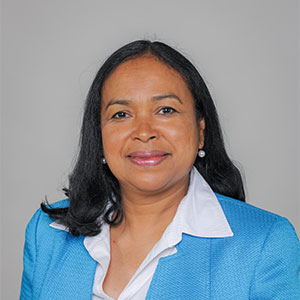
Mercedes Cabrerizo, Assistant Professor
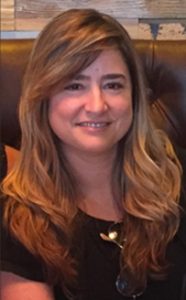
“As a computer and electrical engineer, with a background in image and signal processing, I feel really fortune to apply my knowledge to the development of new algorithms and supporting designs whose generalized construct makes them amenable in their effective application to neurological and neurodegenerative diseases.” October 2019
Deidra Hodges, Department Chair

Mst Shamim Ara Shawkat, Assistant Professor

Atoussa Tehrani, Lecturer
Research Area: Computer Architecture, Embedded Systems, Data Communications
“I chose electrical and computer engineering because I was strong in math and exhibited good analytical skills in my undergraduate program. I am excited to work at FIU because my job responsibilities are challenging and I have the motivation and the means to remain up-to-date with technology. My advice for freshmen engineers is to take on challenges to discover their talents and capabilities.” October 2019
Shabnam Rezapour, Assistant Professor
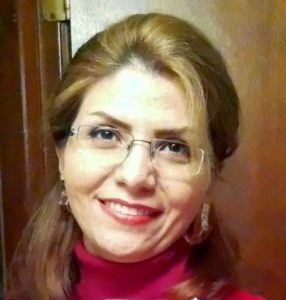
Alicia Miriam Aron, Assistant Professor

Carmen Muller-Karger, Instructor
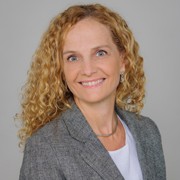
Read more about Carmen Muller-Karger here.
Carmen Schenck, Senior Instructor
Chunlei “Peggy” Wang, Professor
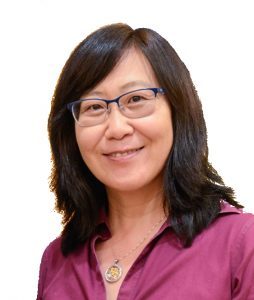
“Fascination in nature. Math and physics are the two courses I am good at. Doing research useful for mankind. Working with smart people. Know your strengths and personality. Make your career choice based on (1) where your burning desire is and (2) what you are good at.” October 2019
Daniela Radu, Associate Professor

“I’ve always been interested in how things work, from the coffee machine to the doorknob mechanism. That curiosity evolved from understanding phenomena at the macroscale into the atomic realm, trying to uncover the intricacies of bond making and breaking, and how they impact at the end the entire behavior of a material. What makes me really excited about my work in solar materials is that I can apply materials made in my laboratory in the real-world products used for harvesting renewable energy. In doing so, I transmit the excitement across to the students, who are the next generation of scientists.
Women engineers must never lose confidence in themselves, as something miraculous happens when you believe in yourself, you become an inspiration to others.”
Ju Sun, Instructor
Lufan Wang, Assistant Teaching Professor

Lu Zhang, Assistant Professor
Research Area: Human-Building Interaction, Smart, Sustainable, and Resilient Infrastructure, Disaster Resilient Communities
“I am excited about construction because I think construction project management is one of the most complex types of management; we are dealing with millions of dollars, years of time to finish a project, and hundreds of project personnel. It also feels so accomplished to see the final product – whether it’s a magnificent high-rise building, a nicely structured bridge, or simply a beautiful house. Being in a beautiful coastal city like Miami, I feel very excited to see so many construction projects going on. I think the construction industry offers great job opportunities to our students. The construction industry is also evolving with many new technologies being introduced, such as building information modeling, artificial intelligence, drones, Internet of Things, virtual reality, and etc. It is exciting to be part of this change and evolution.” October 2019
Alexandra Strong, Assistant Professor
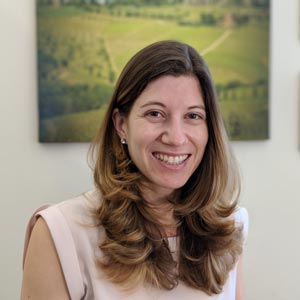
Research Area: Engineering Design Education and Faculty Development
“I decided to pursue an engineering degree in large part because of a scene from Apollo 13. There is a scene in the movie where a group of engineers have to solve a problem using not just physics and math, but creativity and teamwork. Watching them try to make sense of materials that could be found on the spacecraft to ultimately save the astronauts on board was awe-inspiring. I wanted to be a part of that.
What I didn’t realize at the time was that my love for education was just as strong as my desire to be an engineer. As a graduate student, I stumbled upon engineering education and have been conducting research that seeks to support the education of ALL students interested in engineering. In my role at FIU, I have the opportunity to design learning experiences that prepare students to become leaders within multidisciplinary and collaborative engineering work environments. It is a privilege to think critically about these designs, to learn from and with my students, and to integrate the results of my research in my instructional role every class.
One thing I wished more women would have shared with me when I was a student was that I DID belong here, in engineering. So here is me saying to you that You DO belong here. You already are an engineer, a computer scientist, a leader.”
Monica E Cardella, School Director

Trina Fletcher, Assistant Professor
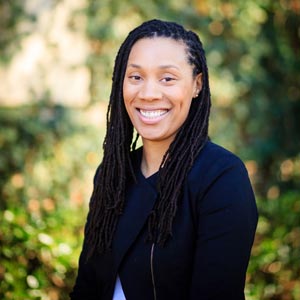
“I pursued multiple degrees in engineering because I came from a low-income family and I knew I’d be able to make a good living and I also wanted to work on innovative, ground-breaking projects. After experiencing unique challenges in industry as a woman and person of color, I pursued and completed a Ph.D. in Engineering Education from Purdue University. I’m excited to be able to use the knowledge and skills I’ve gained to help FIU’s College of Engineering and Computing improve their diversity, equity and inclusion efforts that will lead to increased student success, socially and academically. For future female engineers, if you were accepted into an engineering program, you deserve to be there. If you get an internship at a company, you deserve to be there. Don’t be afraid to speak up, be present and do amazing things wherever you are. Go out and be great!” October 2019


